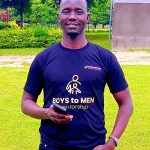UGANDA HAS NO TRANQUIL FUTURE UNLESS WE ADOPT ECOSYSTEM APPROACH TO GOVERNANCE
By Oweyegha-Afunaduula
Conservation Biologist
Center for Critical Thinking and Alternative Analysis
28 June 2025.
I have written about governance severally but mainly in connection with the environment and politics – two areas I have had great interest in for decades. In the very early 1980, just as the field of conservation biology was emerging as an academic and practical field, I was trained at the University in The Biology of Conservation.
In this field, which is another name for Conservation Biology, the ultimate goal was developing ecological, ecosystem and sustainability mindsets in us who underwent the training. I must appreciate that my ecological, ecosystem and sustainability mindsets were greatly developed.
Over the last 45 years. These mindsets have been supersonically broadening. Between 1991 and 2009 I used them to develop the ecological, ecosystem and sustainability mindsets of many students.
Since 2009 I have committed time and energy to develop the collective public ecological, ecosystem and sustainability mindset of Uganda, East Africa, the Nile Basin, the Great Lakes Region, Africa and the World.
I now think, believe and I am convinced that the three types of mindsets can be simultaneously used to improve governance in all spheres of human life and practice.
In this article I want to submit that application of ecosystem mindset to governance can help cultivate a tranquil environment in Uganda in which peace, security, justice, freedom and democracy in their diverse forms can be assured in the long-term.
“Ecosystem mindset is a way of thinking that emphasises interconnectedness and collaboration within a complex system to achieve shared goals and create value for participants. It involves recognizing the interdependencies between different parts of a system, understanding how actions in one area can impact others, and fostering collaboration to achieve mutual benefits. This mindset is crucial for navigating the complexities of modern life and society, where success often relies on the ability to integrate and thrive within larger systems” (AI-generated definition).
There is no doubt that if we are to be successful in achieving development, transformation and progress in Uganda in the 21st century and beyond, ecosystems need to be part of our connected future. We must find ways to openly collaborate to find a greater prosperous future that is more inclusive and participative.
This implies that we must have an ecosystem mindset. One writer (paul4innovating, 2025). Recognising We need a New Ecosystem Mindset. paul4innovating, May 19 2025 https://paul4innovating.com/2025/05/19/recognising-we-need-a-new-ecosystem-mindset/ Visited on 26 June 2025 at 20:06 pm EAT.
recently wrote that with such a mindset we accept that our future will require decentralised leadership, where every participant is encouraged and empowered to innovate, contribute and adapt without reliance on a single orchestrator. He added that ecosystem thinking challenges leaders to embrace roles as “facilitators” of collaboration (at all levels of society) rather than command-and-control decision-makers. It demands that leaders seek learning opportunities over maintaining the status quo and that they embrace change, not as a disruption, but as a necessary ingredient for growth (and development).
It was as if this writer was writing to leaders of Uganda where change has been resisted by the rulers for 40 years, and the command-obey- and control version of governance has been refined and perfected by President Tibuhaburwa Museveni and his personalistic National Resistance Movement Organisation and army.
Simultaneously the country has been bantustanised into numerous, almost non-communicating, entities called districts, and just like was the case during apartheid in South Africa these were given sham decentralisation and promised power and control at the bottom of society, which have systematically been re-centralised. Individualization of society and development have been vigorously pursued at great expense in terms of life, time, energy, money and progress.
With ecosystem thinking and ecosystem mindset as the way forward, we are advised to adopt ecosystem thinking from now on, which means that:
-
We adopt a co-creation mindset by shifting from “what can I gain?” to “what can we build together?”; encourage brainstorming (or debates) across boundaries – whether internal (cross-department, cross-institution) or external (cross-industry, cross-); and create spaces (virtual or physical) for exploration -driven collaboration where experimentation and diverse perspectives thrive in a pluralistic manner.
-
We build bridges, not silos by recognizing that every constraint – be it knowledge gaps, limited resources, or cultural barriers – can be overcome by connecting with others; identify potential collaborators outside your usual sphere (Think cross-sectorally, cross-culturally or even globally where necessary; and actively pursue partnership with those who challenge the status quo – diverse mindsets spark innovation.
-
We must rethink leadership and empowerment, meaning: leader must stop “owning” and start orchestrating – facilitating creativity, trust and mutual success among collaborators; we should focus on empowering people with autonomy and providing tools to experiment without fear of failure (failure and success are interconnected); and we must redesign incentive systems to reward collaborative success stories, not just individual or organisational milestones.
-
We must redefine Success as Resilience, Adaptability and Impact. In other words, we should stop measuring success solely by short-term profit or control, but instead priotise ecosystem resilience, adaptability and long-term value; let us develop success metrics like diversity of input, speed of knowledge sharing, and participant satisfaction – measures that reflect ecosystem health; and let us begin to publish and celebrate stories of successful collaboration – showcase how diverse teams solved shared challenges.
-
We should embrace ecosystem learning loops by treating ecosystems as continuous learning networks, where participants iterate, improve, grow and develop together; create feedback systems that gather insights from all ecosystem participants and use them to refine processes, governance and trust; and leverage case studies of past successes and failures to educate participants about what collaboration can achieve.
Finally, we need Sustainable minds to be able to connect being, thinking and doing in ecologically and ecosystem-driven governance (e.g., Kerul, Rimanoczy and Mitchell (2016). We must embed ecological mindset, ecosystem mindset and sustainability mindset in responsible management of society for human survival (e.g, Cripp, 2024; Cripps and Smith, 2024).
In conclusion, we must be eco-conscious, which means we must be ecologically conscious and eco-systematically conscious. Let us take Uganda as an artificial ecosystem. Every nation is an artificial creation by Man, Homo sapiens. Let us rethink Uganda by adopting ecological thinking and ecosystem thinking, as well as a collective ecological mindset, a collective ecosystem mindset and a collective sustainability mindset, and begin to govern her as one whole with interconnected parts, which were originally four regions – Central, Eastern, Northern and Western – and 15 or so traditional nation states of naturally indigenous peoples of indigenous cultures, indigenous identities and indigenous belonging to the land in 7 or 8 indigenous agroecological systems and environments with indigenous futures, without human and other pollutants. We cannot govern well in an increasingly environmentally-conscious world without being adequately equipped with ecological mindset, ecosystem mind set and sustainability mindset. Without these we govern to destruction of the environmental foundation foundations of existence and survival. Governance without putting ecological mindset, ecosystem mindset and sustainability mindset is environmentally empty and worthless in terms of long-term survival.
For God and My Country
Further Reading
Begon, Michael, Colin R, Townsend and John R. Harper (2006). Ecology: From Individuals to Ecosystems. Fourth Edition. Blackwell Publishing. https://www.esalq.usp.br/lepse/imgs/conteudo_thumb/Ecology-From-Individuals-to-Ecosystems-by-Michael-Begon–2006-.pdf Visited on 25 June 2025 at 10:13 am EAT.
Brad Stevens (2020). Being eco-conscious. Your ecological mindset and its impact on the environment. https://www.tamborasi.com/being-eco-conscious/ Visited on 28 June 2025 at 10:47 am EAT.
Brod, Simon (?). What is a Sustainability Mindset and How Can We Create One? Qhuba, https://qhuba.com/sustainability/what-is-a-sustainability-mindset-and-how-can-we-create-one/ Visited on 28 June 2025 at 11:25 am EAT.
Cripps, Karen (2024). The 12 Principles of the Sustainability Mindset: Explained. Inspiration Space, January 31 2024 https://www.theinspirationspace.co/blog/cultivating-the-sustainability-mindset Visited on 27 June 2025 at 12:10 pm EAT.
Cripps, Karen and Simon Smith (2024). Embedding a sustainability mindset in responsible management education. International Journal of Organizational Analysis, 15 August 2024 https://www.emerald.com/insight/content/doi/10.1108/ijoa-05-2023-3774/full/html Visited on 28 June 2025 at 11:36 am EAT.
Danthine, Noémie (2023). How to embrace a sustainability mindset in the business world. EHL Insights, May 30 2023 https://hospitalityinsights.ehl.edu/sustainability-mindset-in-the-business-world Visited at on 28 June 2025 at 11:08 am EAT.
Geraci, John (2016). How an ecosystem mindset can help people and organizations to succeed. Harvard Business Review, May 12, 2016 https://hbr.org/2016/05/how-an-ecosystem-mindset-can-help-people-and-organizations-succeed
Jooste, Delanie (2023). Cultivating Ecosystem Thinking: Practical Strategies for Every Dimension of Your Organisation. Brainz, November 9 2023 https://www.brainzmagazine.com/post/cultivating-ecosystem-thinking-practical-strategies-for-every-dimension-of-your-organisation Visited on 27 June 2025 at 10:46 am EAT.
Jooste, Delanie (2023). From Silos to Ecosystems: The Power of an Ecosystem Mindset. Brainz, 29 September 2023. https://www.brainzmagazine.com/post/from-silos-to-ecosystems-the-power-of-an-ecosystem-mindset Visited on 27 June 2025 at 09:43 am EAT.
Kassel, Kerul, Isabel Rimanoczy and Shelly Mitchell (2016). The Sustainable Mindset: Connecting Being, Thinking and Doing in Management Education. Academy of Management Proceedings, 2016 (1): 16659. Researchgate, https://www.researchgate.net/publication/320793604_The_Sustainable_Mindset_Connecting_Being_Thinking_and_Doing_in_Management_Education Visited on 28 June 2025 at 11:23 am EAT.
Moore Lappe, Frances (2013). Eco-Mind: Changing the Way we Think, to Create the World We Want. Amazon, April 23 2013 https://www.amazon.com/EcoMind-Changing-Think-Create-World/dp/1568587430 Visited on 27 June 2025 11:06 am EAT.
paul4innovating (2025). Recognising We need a New Ecosystem Mindset. paul4innovating, May 19 2025 https://paul4innovating.com/2025/05/19/recognising-we-need-a-new-ecosystem-mindset/ Visited on 26 June 2025 at 20:06 pm EAT.
Postma, Lammert (2021). Ecosystem Thinking and the Ecosystem Mindset. 3Sides, September 26 2021 https://www.3sides.co/blog/ecosystem-thinking-and-the-ecosystem-mindset Visited on 27 June 2025 at 10:10 am EAT.
Raffaelli, David G., and Christopher L. J. Frid, eds. Ecosystem Ecology: A New Synthesis. New York: Cambridge University Press, 2010.
Vincent, Elisa (2020). Ecosystem Leadership: A New Mindset for Global Leadership. Skillsoft, December 14 2020 https://www.skillsoft.com/blog/ecosystem-leadership-a-new-mindset-for-global-leaders Visited on 27 June 2025 at 10:16 am EAT.
Wade, Michael and Konstantinos Trantopoulos (2025). The Next Competitive Edge: Why AI and Sustainability must evolve together. Observer, 6 June 2025 https://observer.com/2025/06/twin-transformation-ai-sustainability/ Visited on 28 June 2025 at 11:52 am EAT.
Weathers, Kathie, David L. Strayer, and Gene E. Likens (2013). Fundamentals of Ecosystem Science. San Diego: Academic Press/Elsevier, 2013.
This post was created with our nice and easy submission form. Create your post!





